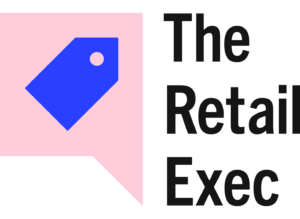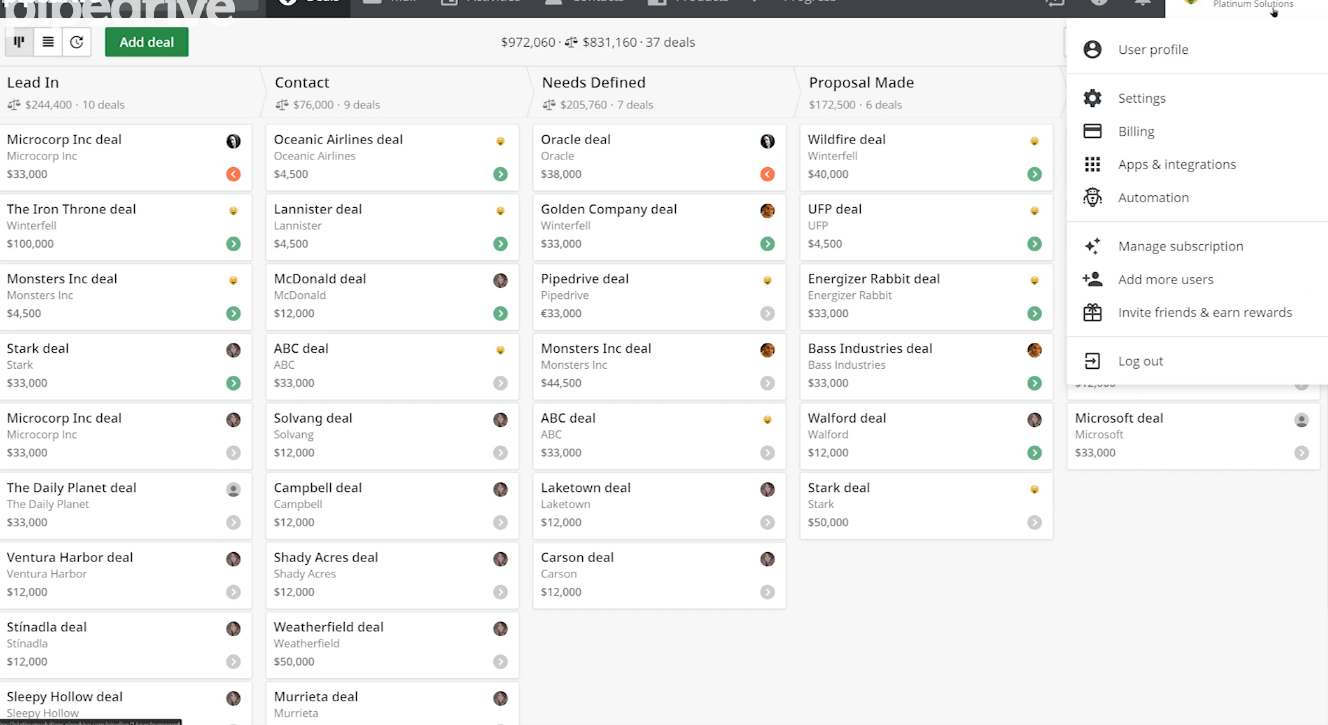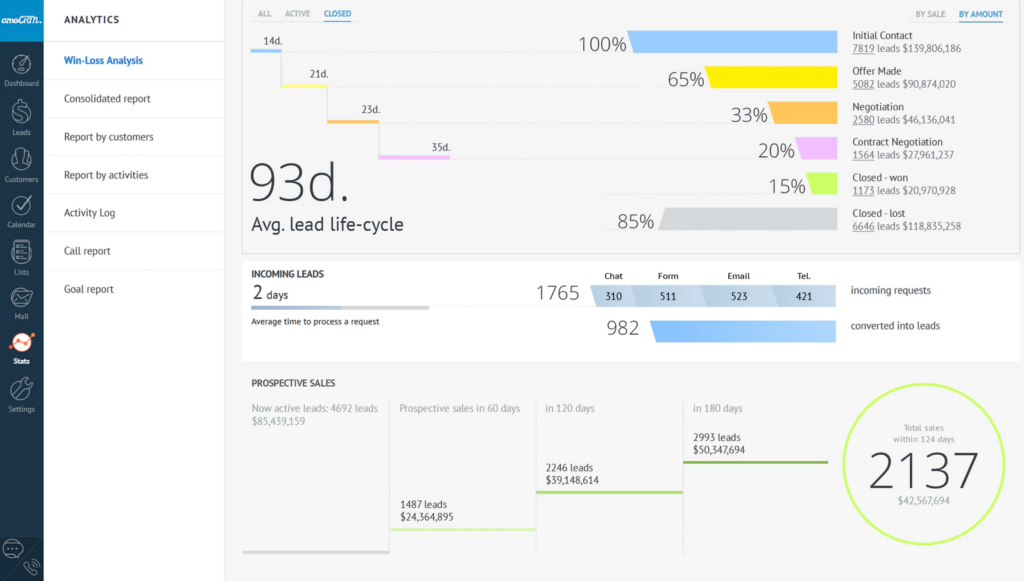The 10 Best CRMs for Ecommerce Customer Experience
Let’s quickly look at our top picks for best CRMs for ecommerce brands. You’ll see the ones we love and what they are best for.
Drowning in data but still clueless about your customers? That’s the curse of running an ecommerce store without a unified CRM.
In this guide, we’ll cut through the noise and spotlight the CRMs that actually move the needle—centralizing customer data, powering behavior-triggered promos, and fueling your marketing automation without breaking a sweat.
We’re talking real-world pros and cons, feature deep-dives, and pricing intel so you can pick the fit that’ll spark growth.
Imagine your sales team logging into a live dashboard that tells them exactly which leads are hot, while marketing fires off hyper-targeted campaigns based on browsing behavior. That’s the magic of seamless CRM integration and cross-department collaboration.
We’ve combed through the field, applied our retail-specific scoring system, and narrowed it down to the platforms that deserve your attention. Ready to turn customer chaos into consistent conversions? Let’s dive in.
Table of Contents
- Why Trust Us
- Feature Comparisons
- 10 Best Ecommerce CRM Software, Reviewed
- Our Selection Criteria for Ecommerce CRM Software
- What is Ecommerce CRM Software?
- How to Choose the Best Ecommerce CRM
- Ecommerce CRM Trends for 2025
- Key Features of Great Ecommerce CRM Platforms
- Top Benefits of Ecommerce CRMs
- Cost and Pricing for Ecommerce CRMs
- FAQs
Why Trust Our Software Reviews
Comparing the Best Ecommerce CRMs, Feature by Feature
So that you have it all in one place, here’s the pricing and feature comparisons of all the ecommerce CRMs we’re covering today.
| Tool | Best For | Trial Info | Price | ||
|---|---|---|---|---|---|
| 1 | Best for growing sales teams | 30-day free trial | From $25/user/month (billed annually) | Website | |
| 2 | Best for rich customer profiles | 14-day free trial | From $30/user/month (billed annually) | Website | |
| 3 | Best for AI-driven sales engagement | 21-day free trial available | From $9/user/month (billed annually) | Website | |
| 4 | Best for marketing automations | 14-day free trial + free demo available | From $15/month (billed annually) | Website | |
| 5 | Best for email marketing campaigns | Free demo available | Pricing upon request | Website | |
| 6 | Best to build a custom sales pipeline | 14-day free trial | From $14/user/month (billed annually) | Website | |
| 7 | Best for integrations | 14-day free trial available | From $24/month | Website | |
| 8 | Best for driving top-of-funnel activity | Free demo | From $895/month | Website | |
| 9 | Best for chat/text marketing | 14-day free trial | From $15/user/month | Website | |
| 10 | Best enterprise CRM | Not available | From $1,250/month | Website |
10 Best Ecommerce CRM Software, Reviewed
Now the good stuff—the reviews. For each ecommerce CRM tool, we’ll talk about what it does, why we picked it, its top integrations, and its best features.
Salesforce is one of the most popular CRM platforms among B2B and B2C markets. It is designed to help businesses bring their sales, marketing, IT, commerce, and service teams together so they can all work seamlessly and collaborate from any location. The software connects teams with customers, leads, and partners through a wide variety of products that include Sales Cloud, Marketing Cloud, Service Cloud, and Customer 360.
With Salesforce CRM, B2B and B2C companies can easily track their customers’ activity, manage their sales and marketing pipeline, target their niche audiences, and collaborate internally. The software is flexible and easy to use, making it the ideal CRM solution for growing e-commerce businesses and online merchants.
Salesforce CRM enables users to access relevant customer data such as contact information and communication history. This helps customer support and service teams optimize their relationship with existing and returning customers. The cloud-based software also allows users to view a detailed timeline of their customers’ activity while keeping track of current deals and the different stages they’re at.
Sales teams can use Salesforce CRM, particularly Sales Cloud, to generate and keep track of quotes as well as orders. The software can also provide different forecasts on sales, subscriber retention, email engagement, and revenue according to key performance indicators (KPIs) and other meaningful insights. Moreover, they can utilize the platform to create workflows with automated business processes that incorporate manual tasks such as drafting custom proposals.
Salesforce CRM is available in four different pricing plans with a starting price of $25 per user/month, billed annually, for the Essentials package. There are also the Professional, Enterprise, and Unlimited plans for $75, $150, and $300 per user/month, respectively. All prices are based on an annual billing cycle.
New Product Updates from Salesforce CRM
Salesforce CRM boosts video streaming & data security
This release brings VP9 with SVC for sharper, more efficient video streaming and a Beta Identity Insights API for real-time phone intelligence to curb fraud and enrich data. Visit Salesforce CRM’s website for more.
Act! is a robust CRM and marketing automation platform that can be deployed via the cloud or on-premise. It's tailored for small and midsize businesses (SMBs) looking to improve their sales and marketing initiatives and develop lasting customer relationships.
The CRM platform puts heavy emphasis on gaining a better understanding of a company’s target customers. When an agent or customer service representative receives a call, Act! CRM works to provide this user with all the vital information about the caller/client. This includes the last time the customer called, which product or services the customer likes, and their personal information such as family names, company names, positions, and even their favorite hobbies. This allows users to instantly personalize the experience, making customers feel that they're valued.
Act! CRM also offers automated outbound marketing and smart analytics, helping users better understand their contacts and the type of experience or service they respond to the best. The platform is equipped with automated communication tools as well, allowing sales and marketing personnel and customer support teams to free up their time and focus on other important aspects of their work.
Act! includes many integrations that are beneficial for e-commerce managers. For example, using their Shopify integration, information such as order ID, product price, and quantity of items are automatically sent to Act!’s contact record for future reference. This enables users to conduct informed conversations with customers and send targeted emails to individual or grouped contacts.
Other integrations include BigCommerce, Ecwid, Etsy, Freshbooks, QuickBooks, Volusion, and WooCommerce.
Pricing for Act!’s cloud-based and on-premise CRM software is pretty straightforward. Act! Premium Cloud starts at $30/user/month, while Act! Premium Desktop costs $37.50/user/month. They also offer a 14-day free trial too.
Freshsales is a Sales CRM software designed to assist businesses in selling smarter and closing deals more quickly. It is distinguished by its AI-driven sales engagement capabilities, which include AI-powered contact scoring, predictive deal insights, and intelligent workflow automation, contributing to its productivity and effectiveness in managing sales processes.
I chose Freshsales as a great ecommerce CRM because of its focus on leveraging AI to enhance the sales process, particularly through features like AI-powered contact scoring and predictive deal insights. What makes it different is its comprehensive approach, unifying CRM functionalities for sales, marketing, and support within a single platform.
Freshsales CRM offers AI-powered Contact Scoring through Freddy AI, which evaluates leads and contacts using AI to score them based on their engagement and profile data, aiding sales teams in prioritizing promising leads. The software also provides Predictive Deal Insights by analyzing historical deal data to forecast the success of ongoing deals, helping sales representatives to concentrate on the most viable opportunities. The unified CRM Suite consolidates sales, marketing, and customer support within a single platform, offering a holistic view of customer interactions and facilitating team collaboration.
Freshsales integrates with Freshdesk for customer support, Freshchat for messaging, Freshservice for IT service management, and Freshmarketer for marketing automation. It also connects with Google Calendar, MailChimp, Segment, Zapier, Office 365, Google Apps, Slack, Facebook, LinkedIn, Jotform, Typeform, Calendly, Email Parser by Zapier, and ClickFunnels Classic to facilitate various business processes.
Pricing for Freshsales CRM starts from $15/user/month. Freshsales CRM includes a 21-day free trial.
Active Campaign is an eCommerce CRM that totes solutions for awareness building, intent analysis, nurturing relationships through email segmentation and dynamic content, contact and lead scoring, attribution tracking, and conversations via SMS, email, and live chat. As far as paid tools go,
Active Campaign’s modest monthly price scored them quite well in the Value for Cost evaluation consideration. You have limited contacts with this cost-effective plan but that makes it ideal for smaller businesses or teams. Integrations include Shopify, Salesforce, Typeform, Facebook, WordPress, Google Analytics, Unbounce, ClickFunnels, Pipedrive, WooCommerce, WPForms, WebinarGeek, Demio, 123FormBuilder, ActiveWoo, Airtable, Akita, Basecamp, Capsule CRM, Chargify, DropBox, Facebook, and many more through Zapier.
Noticeable weaknesses of the software include frequent bugs that can interfere with email campaigns. The 1-user limit on the Lite plan is also a bit stingy.
Active Campaign starts at $15/month for up to 500 contacts and offers a 14-day free trial or free demo upon request.
SharpSpring has a host of digital marketing features available for its users, like dynamic landing pages, social media tools, CRM and sales automation, a dynamic form builder, reporting and analytics, and the capacity for leveraging an Anonymous Visitor ID for unfamiliar leads.
Boasting a simple, clean, and sensible user interface, SharpSpring is an optimally designed piece of software. It’s endlessly searchable and presents great data visualizations.
Thus, they scored highly in the UX segment of the evaluation criteria. Integrations include Veeqo, Plecto, Easy Projects, Tilkee, AdRoll, Hello Bar, Paperform, Bookeo, TradeGecko, PomoDone App, CloudCart, StoryChief, Ravetree, Bookmark, FullContact, SimpleTexting, Omniconvert, Accredible, Databox, WebMerge, Pipefy, WebinarNinja, and more.
A few cons to note: the visual email builder can be a bit temperamental, landing pages aren’t as easy to create as they are with other options on this list, and complete outages during prime hours for updates.
SharpSpring starts at $550/month for up to 1500 contacts and offers a free demo.
Pipedrive is a customer relationship management (CRM) software that's geared towards the needs of sales teams. It offers a highly customizable visual sales pipeline that you can use to represent your brand's unique sales funnel. You can either build from scratch or use one of the pre-built templates, then simply drag and drop leads across the stages.
As customers move through your pipeline, you can add notes to their records and schedule follow-up actions to drive engagement. Web data can also be collected to enrich your customer records and provide information you might not otherwise have. You can use this data to craft more personalized experiences for your customers. Segmentation is also included in the platform, so you can target specific groups based on behaviors and other factors.
Reporting and analytics dashboards are also available to help you understand customer behavior. You can track average time to sale, which channels convert the most, and other core metrics. Revenue forecasting is also available to help you see what's ahead. Of course, your email is integrated into the tool for easier communications management.
Integrations include Google Meet, Microsoft Teams, Asana, QuickBooks, Trello, Zoom, Smart Docs, Zendesk, Facebook messenger, WhatsApp, DocuSign, and monday.com. Additional integrations can be configured with Zapier. Plans start at $21.90 per user, per month, and a 14-day free trial is available.
Ontraport helps you focus on spending on lead sources that work and find growth opportunities through landing pages, forms, membership sites, UTM data, email, SMS, and referral programs. According to the CEO, this solution was developed with startups and entrepreneurs in mind.
Ontraport absolutely takes the cake for hefty integration possibilities, offering lists of 3rd-party applications ready for an add-on as well as a few API helpers (like Zapier) to broaden their connectivity even more. This resulted in a perfect Integrations score per our evaluation criteria.
Ontraport integrations are numerous, including Quickbooks, XERO, Acuity Scheduling, Calendly, Google Calendar, Schedule Once, Time Trade, JotForm, PopupAlly, ConvertPlus, Bloom Form, Wufoo Forms, Freshdesk, Zendesk, Leadpages, WP Courseware, Shopify, WooCommerce, Facebook, Heyo, Viral Sweep, GoToWebinar, Zoom, and more. Plus, they have additional options through a variety of API Helpers like Zapier, Apiant, and WebMerge.
A few struggles noticed in the software are the clumsy execution of email campaigns as well as a labyrinthian interface that can make certain features hard to hunt down.
Ontraport starts at $79/month for 1000 users and offers a free 14-day trial.
Part of the Adobe software family, Marketo has solutions for acquisition to advocacy including lead management, email marketing tools, revenue attribution, and account-based marketing. They offer robust training and onboarding solutions with their Marketo University program.
Like any Adobe product, Marketo is extremely feature-rich. Some of the best parts of the tool are their dashboards and reports features, powerful automation capabilities, and the ability to host drip campaigns triggered on the behaviors of your leads.
Marketo has been singled out by both customers and analyst firms as having the most robust CRM integrations in the industry. This includes native integrations for Salesforce.com and Microsoft Dynamics CRM; integrations for Netsuite, Oracle, SAP Cloud for Sales, and SugarCRM; and custom configurations.
Seeing as Marketo is made by Adobe, it’s probably not surprising that they didn’t score too well in the Value for Cost segment of the evaluation criteria. They are the second-highest priced item on this CRM tool list—aggravated by the fact that they don’t offer a free trial of their software.
Marketo starts at $895/month for up to 10,000 contacts and offers a free demo.
Millions of people buy and sell via instant messaging services and amoCRM helps you tap into that market. Connect with leads and customers, regardless of the messenger app they prefer, and leverage a built-in chatbot to your advantage or use their visual builder to make your own. amoCRM promises to connect you with all things communication, from chat to video to SMS, and so this is where their connectivity excels.
Because of this, they scored highly in the Integrations section of the evaluation criteria. Integrations include Gmail, Facebook, Dropbox, Google Calendar, Stripe, Quickbooks, PieSync, WhatsApp, Viber, Telegram, Instagram, Skype, WeChat, Facebook Messenger, Snap Engage, Twilio SMS, LiveChat, Tidio Chat, Active Campaign, MailChimp, Google Analytics, Aircall, WordPress, Unbounce, and more.
A few cons to be noted about this software are a complex and clumsy interface, complete shut-outs during updates, and difficulty importing/exporting client lists.
amoCRM starts at $15/user/month and offers a free 14-day trial.
Pardot, B2B marketing automation by Salesforce, offers a marketing automation solution supporting the needs of B2B organizations of every size. They promise streamlined lead management, smarter lead generations, AI lead scoring, and campaign insights. If you are already in the Salesforce ecosystem, Pardot is an unequivocal must-have. It has the capability to empower even low-tech users to set up their own landing pages and email campaign with minimal help.
Pardot is a native Salesforce integration. Salesforce can also integrate with Google Cloud, Quickbooks, Slack, MailChimp, LinkedIn, DocuSign, JIRA, HelloSign, CodeScience, Active Campaign, Dropbox, and more. As far as Value for Cost goes, this platform lost some points per our evaluation scale for being, by far, the most costly CRM solution on this list.
Although feature-packed, this CRM tool is the only item on this list that breaks $1000 for their starter plan. On the other hand, Salesforce Pardot is known as being very easy to learn and use.
Salesforce Pardot starts at $1,250/month for up to 10,000 contacts and offers a free demo.
Other Ecommerce CRMs
- HighLevel
For strategic pipeline management
- Thryv
CRM for small businesses
- Lucrativ
For call-based communications
- Creatio CRM
For ease of use
- eDesk
For AI-powered customer support
- Zendesk Sell
Sell gives reps access to integrated tools that provide the full context of a customer account from introduction to the sale
- Copper
A CRM designed for G Suite with the ability to manage all your contacts, deals, emails, files, and more in one place
- monday CRM
CRM with task management
- GetResponse
A suite of email marketing and online campaign management tools focused on sales, ROI, and online marketing
- Iterable
Growth marketing platform that connects through email, mobile push, SMS, in-app notifications, web push, social, and more
Our Selection Criteria for Ecommerce CRM Software
Selecting the right ecommerce CRM is all about balancing functionality, usability, and value.
After extensive personal trials and research, we've developed a weighted scoring system to guide you through what matters most when choosing your CRM. Here’s the breakdown:
Core ecommerce CRM functionality (25% of total weighting score)
This is the foundation. A great ecommerce CRM needs to cover the basics with strong core features to keep your business running smoothly:
- Centralized customer data management that captures and makes all interactions across multiple channels easily accessible.
- Automated marketing tools that allow targeted campaigns based on customer behavior and preferences.
- Customer segmentation for personalized communication and offers.
- Analytics and reporting features that provide valuable insights into customer behavior, sales trends, and campaign effectiveness.
- Integration capabilities with other ecommerce platforms to ensure seamless data flow and automated processes.
Additional standout features (25% of total weighting score)
All the little extras that set a CRM apart. These features help streamline your business and elevate the customer experience:
- Predictive analytics that offer personalized product recommendations based on customer data.
- AI-powered customer support features, such as chatbots, for instant customer service and personalized interactions.
- Omnichannel support to ensure a unified experience across all customer touchpoints.
- Machine learning capabilities that help generate better insights and drive smarter decision-making.
Usability (10% of total weighting score)
Your team should be able to make the most of the CRM without a steep learning curve:
- A user-friendly interface that balances sophistication with simplicity, ensuring accessibility for all team members.
- Visual dashboards that present data and insights in a clear, digestible format.
- An intuitive design that reduces the learning curve and improves team efficiency.
Onboarding (10% of total weighting score)
You need to be able to get up and running quickly without any major hiccups:
- Comprehensive training materials, such as videos, templates, and interactive product tours.
- Easy data migration from existing systems to ensure a smooth transition.
- A structured onboarding process that quickly gets your team up to speed and maximizing the CRM's value.
Customer support (10% of total weighting score)
Great support is your safety net when issues arise:
- Responsive support across multiple channels (live chat, email, phone).
- Access to a knowledge base or community forum where users can find answers and share tips.
- Regular updates and clear communication from the vendor on new features and improvements.
Value for money (10% of total weighting score)
This ensures you’re not overpaying for features you don’t need:
- Transparent pricing models that scale with your business size and needs.
- A clear fee structure with no hidden costs, providing good value for the features offered.
Customer reviews (10% of total weighting score)
Reviews offer real-world feedback on how the CRM performs in practice:
- Positive feedback on how the tool impacts business operations and customer satisfaction.
- High ratings in critical areas like ease of use, customer support, and feature set.
- Success stories from businesses like yours that have seen tangible benefits from implementing the CRM.
By applying these criteria, you can feel confident in selecting an ecommerce CRM that not only meets your current needs but also supports your long-term growth and customer engagement goals.
What is Ecommerce CRM Software?
Ecommerce CRM software is the central hub that ties together every customer touchpoint—from first click to fifth purchase—to drive smarter marketing and faster sales.
Think of it as your brand’s command center: it gathers purchase history, browsing behavior, and communication preferences all in one place.
When sales, marketing, and support teams share that unified data, you get personalized experiences that boost engagement, loyalty, and lifetime value.
How to Choose the Best Ecommerce CRM
Choosing a CRM shouldn’t feel like speed-dating every vendor. Use this roadmap to zero in on the platform that fixes your real pain points, fits your team’s style, and scales with your store.
| Step | What to do & why | Pro tip |
|---|---|---|
| Pinpoint the problem | List your top pain points (data silos, manual follow-ups) so you solve real roadblocks, not chase shiny toys. | Interview support, sales, and marketing teams for the full picture. |
| Consider the users | Define who’ll use it (sales reps vs. full marketing squad) to make sure it actually gets adopted. | Pilot with a small group before rolling out company-wide. |
| Check integrations | Map must-have connections (Shopify, MailChimp, accounting) to avoid data bottlenecks and redundant work. | Favor native integrations over custom APIs for reliability. |
| Focus on outcomes | Tie every feature back to a business goal (repeat orders, support load reduction) so you evaluate by ROI. | Score each feature on impact vs. effort (1–5) to prioritize. |
| Match your workflows | Sketch current processes and spot where the CRM plugs in to prevent awkward workarounds. | Look for customizable workflows, not rigid, one-size-fits-all. |
| Think scalability | Estimate future users, data volume, and custom fields so you don’t outgrow your CRM next quarter. | Check upgrade costs and hidden fees before you commit. |
| Test usability | Run a trial and time key tasks (lead entry, email sends) to catch hidden complexity early. | Have non-tech teammates try core tasks and weigh in. |
Ecommerce CRM Trends for 2025
We’ve sifted through countless product updates, press releases, and feature releases to uncover the hottest trends in ecommerce CRM technology. Here’s a glimpse of what’s shaping the future of customer management in ecommerce:
- All-in-one solutions. Platforms like Zoho CRM Plus are leading the charge by integrating customer management, service, and inventory into one system. This shift towards unified platforms allows businesses to manage multiple aspects of their operations seamlessly, ensuring a smooth and cohesive customer experience.
- Enhanced personalization and customer insights. Lightspeed CRM is pushing the envelope with advanced customer profiling, personalized communications, and unique status assignments for customer segments. This trend points to the importance of tailored customer experiences to increase loyalty and satisfaction, with CRMs offering deeper insights into individual customer behavior.
- AI-driven customer engagement. Freshsales is making waves with AI-powered contact scoring, predictive customer behavior insights, and automated engagement workflows. As AI becomes more integrated, CRMs are improving the ability to predict customer needs, automate follow-ups, and enhance interactions without requiring manual input from teams.
- Mobile-first customer interactions. With mobile wallet interfaces and mobile-centric CRM features growing in popularity, businesses are adapting to more mobile-first customer engagement strategies. CRMs are evolving to facilitate smooth, real-time interactions on mobile devices, ensuring businesses can engage customers wherever they are.
- Inflation-adaptive customer retention strategies. Retailers are focusing on delivering value beyond just pricing, with CRMs playing a key role in managing ethical sourcing, loyalty programs, and sustainable practices. As customers become more value-conscious, CRMs are helping businesses track and optimize retention strategies that align with customer values and expectations.
- Social commerce integration. The explosion of social commerce through platforms like TikTok and Instagram is prompting CRMs to integrate with these channels more effectively. Social media is becoming a key touchpoint for customer service and engagement, with CRMs playing a pivotal role in managing these interactions and creating seamless customer journeys across social platforms.
These trends reflect a growing focus on creating more personalized, efficient, and value-driven customer experiences.
Key Features of Great Ecommerce CRM Platforms
A top-tier ecommerce CRM turns raw customer data into actionable growth strategies—no fluff, just fuel for your marketing and sales engines. Here’s what you need on your shortlist:
- Customer behavior tracking. Capture every click, cart addition, and purchase in one place so you can tailor outreach and predict next moves.
- AI-driven insights. Leverage predictive analytics and machine-learning models to forecast sales trends, identify high-value leads, and optimize promotions.
- Sales process automation. Auto-route leads, trigger follow-ups, and streamline quote-to-order workflows to keep reps selling instead of babysitting spreadsheets.
- Omnichannel orchestration. Sync interactions across email, live chat, social media, SMS, and your website for a consistent, real-time customer journey.
- Advanced analytics and reporting. Build custom dashboards that surface revenue forecasts, campaign ROI, and retention metrics at a glance.
- Granular segmentation and targeting. Slice your audience by demographics, purchase history, engagement level, or custom tags to deliver laser-focused campaigns.
- Seamless platform integrations. Native connectors for Shopify, WooCommerce, Magento, payment gateways, email tools, and accounting systems prevent data gaps and duplicated work.
- Scalability and flexibility. Add users, custom fields, and new modules without slowing performance or triggering expensive migrations down the road.
- Intuitive user experience. Strike the balance between deep functionality and clean design—so everyone from interns to execs can dive in without a week-long training.
- Built-in customer support tools. Chatbots, ticketing, and knowledge-base integration keep service teams responsive and data flowing back into the CRM.
Pick a CRM that nails these features, and you’ll move from guesswork to data-backed decisions—unlocking customer loyalty, smoother operations, and measurable revenue gains.
Top Benefits of Ecommerce CRMs
Unlocking the full power of your customer data can transform every corner of your operation.
- Improved marketing efficiency. Behavior-based campaigns and automated workflows let you hit the right audience at the right time.
- Sales team empowerment. Real-time dashboards, standardized pipelines, and automated tasks free reps to focus on closing deals.
- Cross-department collaboration. A unified customer view breaks down silos between marketing, sales, and support.
- Deeper customer insights. Rich profiles built from purchase history, browsing data, and communication preferences fuel smarter decisions.
- Streamlined sales processes. Automated lead management and order tracking replace manual follow-ups and chaotic spreadsheets.
- Stronger customer retention. Personalized recommendations and loyalty programs keep shoppers coming back.
- Consistent omnichannel experiences. Seamless service across email, chat, social media, and web builds trust.
- Scalability for growth. Flexible plans and customizable fields ensure your CRM adapts as your store expands.
- CRM integration challenges. Implementation complexity, security considerations, and employee training can slow adoption—see our FAQ for details.
Cost & Pricing for Ecommerce CRMs
Ecommerce CRM pricing runs the gamut, from free starter plans to enterprise-grade setups that pack a punch (and a price tag).
Here’s how the costs typically break down and what you can expect at each tier:
| Plan type | Average price | Common features | Best for |
|---|---|---|---|
| Free | $0/user/month | Basic contact management, limited email marketing, basic reporting | Startups and small businesses testing CRM solutions |
| Basic | $10 - $30/user/month | Contact management, basic reporting, email marketing integration, limited automation | Small businesses needing essential CRM features |
| Professional | $50 - $100/user/month | Advanced analytics, customizable dashboards, marketing automation, CRM integration | Growing businesses requiring robust functionality |
| Enterprise | $150 - $300+/user/month | Custom development, dedicated support, advanced security features, unlimited automation | Large enterprises with complex needs and high customization |
Additional costs to consider
CRM pricing isn’t always as simple as the numbers you see on the pricing page. Here are the extras to budget for:
- Onboarding fees. Some platforms charge a one-time fee for professional setup and training. Costs vary but can range from $500 to $2,000, depending on your plan and the complexity of your business.
- Add-ons and integrations. Need extra storage, AI-driven analytics, or integrations with third-party tools like accounting software or advanced reporting suites? These often come with additional fees, starting at $10/month per feature or user.
- Annual vs. monthly billing. Most CRMs offer discounts for committing to annual plans—up to 20% in savings—so if you can swing the upfront cost, it’s worth considering.
- Scaling costs. As your business grows, you’ll likely need to add more users or expand feature sets. Keep an eye on per-user fees, which can add up quickly if you’re scaling fast.
Ecommerce CRM FAQs
Here are a few of the most common questions about using ecommerce CRM tools, in case you still had lingering questions.
What is an ecommerce CRM, and how does it differ from traditional CRMs?
Ecommerce CRM software is built for online stores. It captures browsing behavior, cart data, and purchase history to power targeted outreach and automate store-specific workflows.
Traditional CRMs focus on broad B2B pipelines and manual data entry—think deal stages and cold calls—whereas ecommerce CRMs sync natively with your storefront, payment gateways, and marketing stack to handle high-volume, customer-centric interactions.
How does CRM integration boost marketing and promotions?
Seamless CRM integration turns raw data into precision campaigns. By piping in real-time behavior—page views, abandoned carts, repeat orders—you can automate behavior-triggered emails, SMS blasts, and loyalty offers that actually convert. No more batch-and-blast guesswork: your marketing hits the right audience at the exact moment they’re primed to buy.
How do ecommerce CRMs empower sales teams?
They put the pulse of your pipeline at your reps’ fingertips. Real-time dashboards show exactly which leads are hot, which deals are stuck, and where to focus next. Automated lead scoring, task assignment, and follow-up reminders replace admin busywork, so reps spend more time closing and less time playing spreadsheet whack-a-mole.
What are the drawbacks of CRM integration?
Integration isn’t plug-and-play. You’ll need a clear implementation plan, solid data-mapping, and security audits to avoid leaks or downtime. Plus, your team will face a learning curve—training and change management are must-haves to prevent half-baked adoption and dust-gathering features.
How do ecommerce CRMs handle customer data privacy?
They lock down your customer secrets. Leading platforms offer built-in consent management, data anonymization, and AES-grade encryption at rest and in transit. You get GDPR- and CCPA-compliant tools—like opt-in banners and automated data-erasure workflows—so you keep trust high and legal risk low.
Can ecommerce CRMs automate customer service processes?
Absolutely. From auto-routing tickets and chatbots that handle FAQ fire drills, to templated follow-ups and SLA alerts, CRMs streamline support workflows and feed every interaction back into the customer record. That means faster resolutions, happier customers, and zero manual handoffs.
What's Next?
If you're in the process of researching ecommerce crm, connect with a SoftwareSelect advisor for free recommendations.
You fill out a form and have a quick chat where they get into the specifics of your needs. Then you'll get a shortlist of software to review. They'll even support you through the entire buying process, including price negotiations.





















